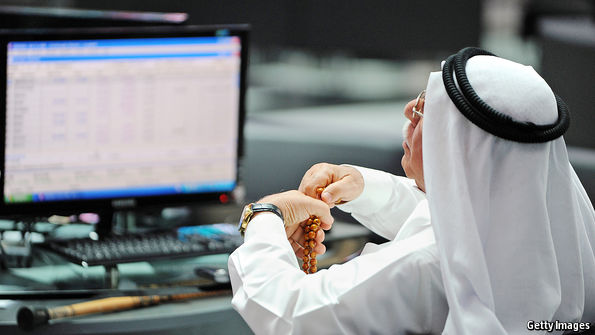AT City Centre mall, Bahrain’s largest, Bahrainis buy, while foreigners operate the tills. Michelle is from the Philippines, and lowers her voice to explain why there are so few Bahrainis working alongside her. “They are lazy,” she says. Whereas she needs to work hard to keep her job and the visa that goes with it, they can do whatever they want, which isn’t much.
As part of a government plan to boost indigenous employment, employers in Bahrain are given targets for the proportion of locals they must hire. The targets vary: in grubby or boring sectors, requirements are lower—large building-maintenance firms can get away with a 5% “Bahrainisation” rate. Sectors with more prestige, like banking or finance, face higher targets, of 50% for larger companies. Small clothes shops face a quota of 30%. Michelle points to the store opposite, which employs some Bahraini staff on the shop floor. They don’t even want to stand up when the customers come in, she grouses—they know they are there purely to keep the government happy, and are not likely to be fired.

